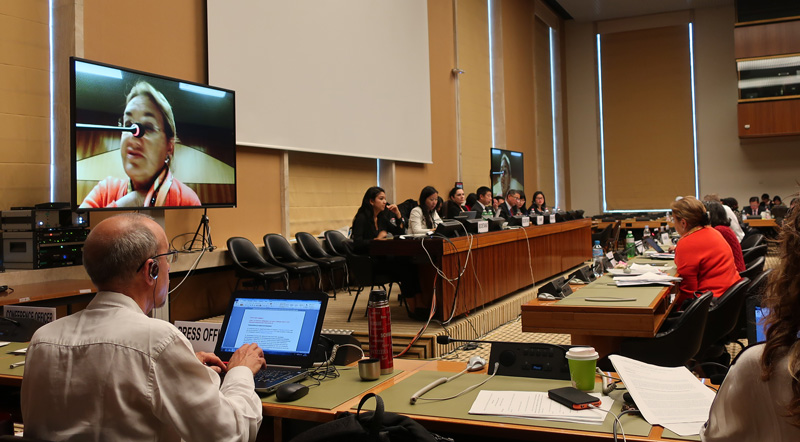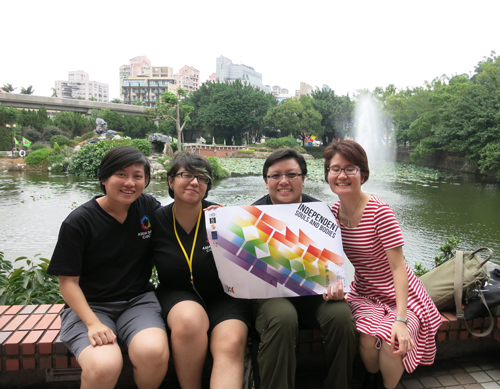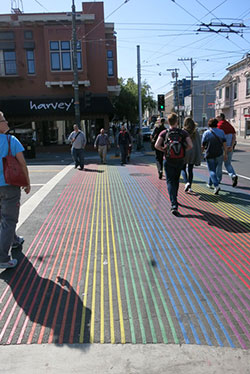Sayoni at ILGA-Asia Conference 2019
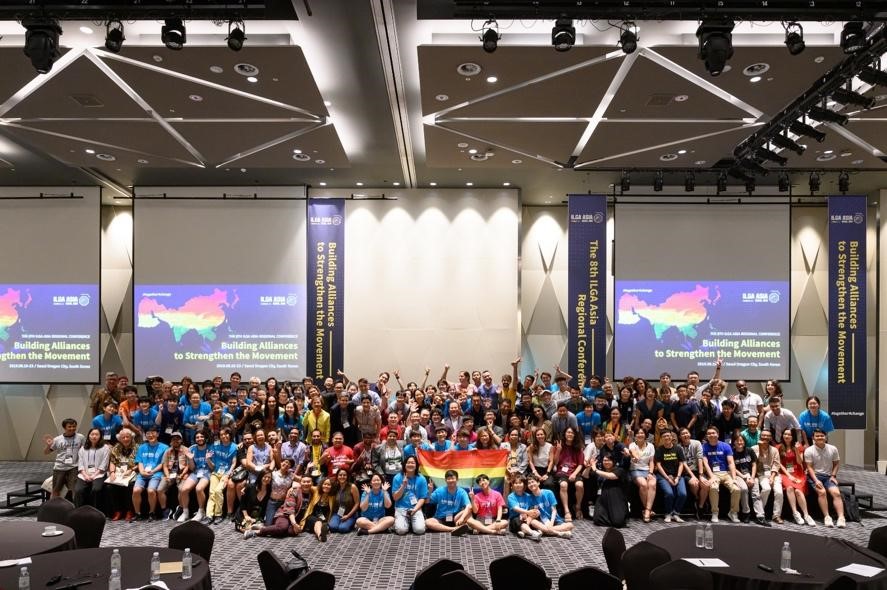
On 19th to 23rd August 2019, Sayoni attended the ILGA Asia Regional Conference held in Seoul, South Korea. This year, the conference focused on the theme of "Building Alliances to Strengthen the Community", which saw over 300 participants from 30 countries, including Lebanon, China, the Philippines, Indonesia and Singapore. It was the first time I attended a lesbian, gay, bisexual, transgender, intersex and queer (LGBTIQ) conference, and it was undoubtedly an inspiring and exciting experience.
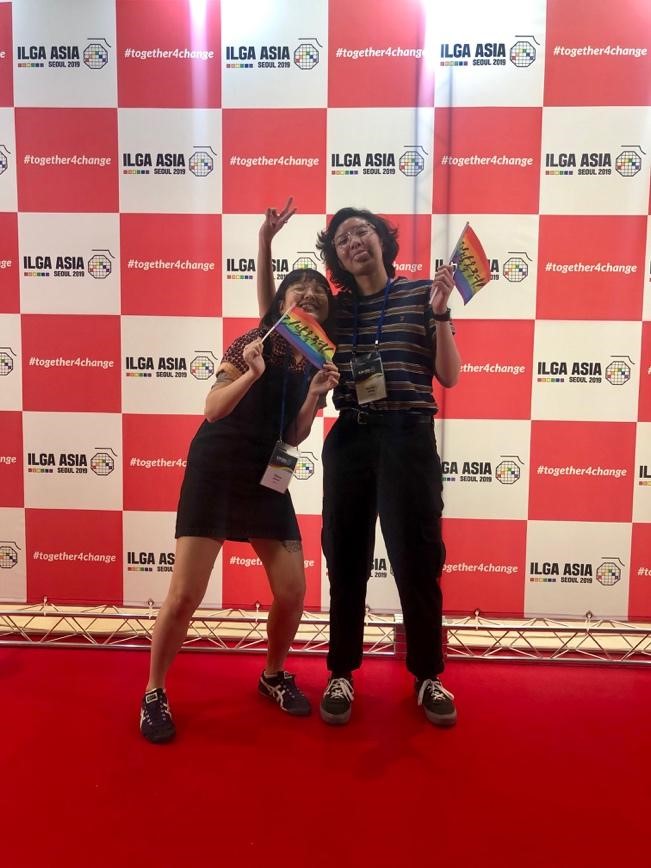
On the first day, the first ever lesbian pre-conference at ILGA Asia was held. It served as a safe space to address the multiple and intersecting human rights challenges lesbians face. I shared about the violence and discrimination faced by LBTQ women in Singapore with fellow participants, and it comes as no surprise that similar issues are pervasive and pertinent in most countries around the region. In many Asian countries, patriarchal constructions of the family and gender roles contribute to the oppression of LBTQ women in both public and private spheres. Given the lack of space and representation for lesbians in both the LGBTIQ and feminist movements, it was a heartening experience to build solidarity and learn from fellow lesbian activists.
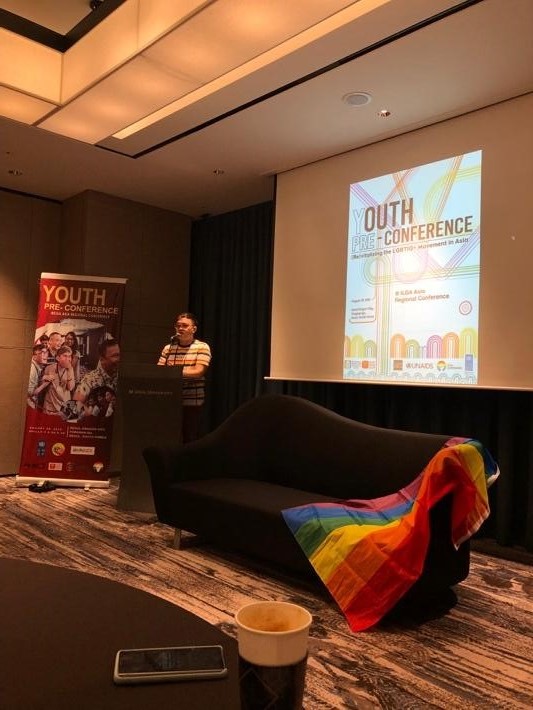
The second day also saw another first -- the first youth pre-conference at ILGA Asia, organized by Youth Voices Count, a LGBTIQ youth-led network for the Asia Pacific region. On top of the stigma and discrimination young persons face for being LGBTIQ, youths are also vulnerable to specific forms of social, financial and political disadvantage, which impacts their life chances, especially during their formative years. This calls for the need to be more youth-inclusive, since advocacy spaces often lack youth representation. During the youth pre-conference, I spoke on a panel, "Building the LGBTIQ Youth Movement in Asia", where I shared about the work Sayoni, in collaboration with The Bi+ Collective Singapore, has done on documenting the experiences of LGBTIQ youths through our report for the UN Convention on Rights of the Child. 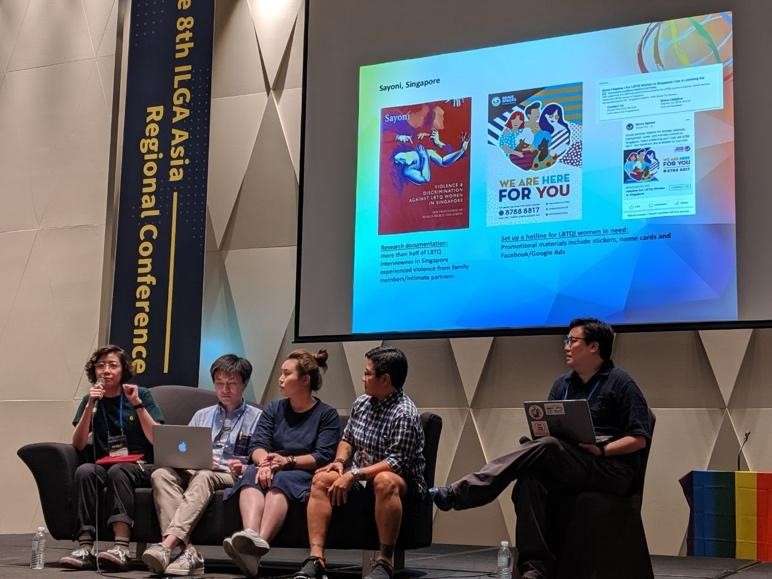
During the main conference, I was also on a panel discussion, moderated by Jean from Sayoni and Outright International, regarding "Domestic Violence and Intimate Partner Violence against LGBT Persons in Asia". Besides sharing about the issues faced in Singapore, such as the gaps in reporting and protection against domestic violence for LBTQ persons, it was also a great opportunity for me to learn from the other panelists working in the Philippines, China, and Taiwan, which gave me many insights to reflect on.
Working on LGBTIQ activism in Singapore can feel like an immense struggle most of the time, given the challenges, restrictions and disappointments we face. But attending the ILGA Asia Regional Conference reminded me that we aren't alone and isolated; it is a struggle that goes beyond our nation's borders. Although LGBTIQ rights have improved in Asian countries over the recent years, such as decriminalization of homosexuality in India and legalization of same-sex marriage in Taiwan, many of our communities continue to face widespread discrimination and persecution. ILGA Asia provided a much-needed space for LGBTIQ activists in Asia to strengthen solidarity and continue the fight for a united and resilient regional movement.

